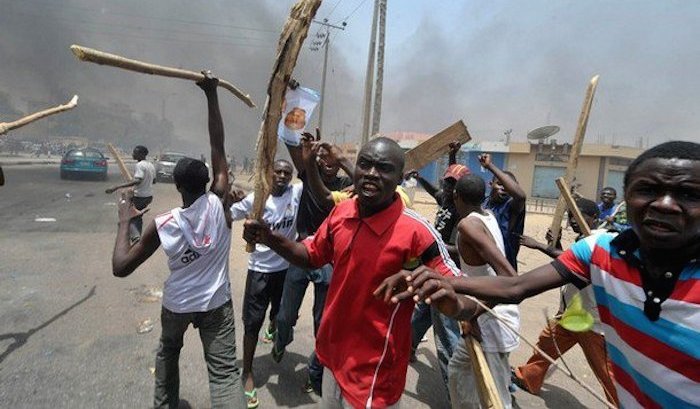


The unending insecurity nightmare: A call to action
The recent spate of attacks and kidnappings across the country, particularly in the South-West, has once again brought to the fore the precarious state of security in Nigeria.
The gruesome account of Nurudeen Olaitan Salami, a survivor of a deadly herdsmen attack on April 17, is a chilling reminder of the horrors that many Nigerians face daily.
The fact that the attackers, armed with satellite phones and solar panels, could so brazenly carry out their nefarious activities, speaks volumes about the level of impunity that exists in our society.
The deliberate targeting of innocent citizens, including women and children, is a reminder of the depths of depravity to which these criminals have sunk.
Furthermore, the apparent complicity of some Fulani passengers and the bus driver, who were allowed to go scot-free, raises questions about the role of ethnicity and collusion in these crimes.
The fact that the security forces were unable to rescue the captives, despite engaging the attackers in a gun battle, is also a cause for concern.
This incident is not an isolated one. The renewed banditry in the South-West, the Enugu masquerades’ vicious attack, and the numerous other cases of kidnapping, terrorism, and bloodshed across the country, all point to a systemic failure of security and governance.
Despite the peace accord signed by farmers and herders, the violence has continued unabated, with Ogun, Ekiti, and Oyo states bearing the brunt of the attacks.
The payment of N31 million in ransom for three kidnapped individuals in Oyo State and the kidnapping of Alhaja Seliat Adeniji in Iseyin, Oyo State, are stark reminders of the escalating insecurity in the region.
The affected areas, including Otu, Igbeti, and Alaga in Oyo State, are witnessing a rise in banditry, armed robbery, and kidnapping, with major highways such as the Lagos-Ibadan, Ibadan-Ijebu-Ode, and Ore-Ijebu Ode-Lagos roads becoming hotspots for criminal activity.
The situation is further compounded by the kidnapping of eight cocoa farmers in Edo State and three students in Ovia South-West local government area.
The disregard for the peace accord signed by farmers and herders is a clear indication of the disdain for human life and the rule of law.
The crisis has not only worsened food insecurity in the region but also perpetuated violence against women farmers, who are easy targets for kidnappers, robbers, rapists, and killers.
It is imperative that security organisations take decisive action to address this crisis. Folding their arms while terrorists wreak havoc is unacceptable.
The government must work with stakeholders to implement effective security measures, prosecute perpetrators, and address the root causes of these crimes. The people of the South-West, and indeed Nigeria, deserve better. We demand action now!
We deplore the upsurge in banditry, kidnapping and other criminal activities.
Given that some of the governors in the zone have demonstrated above average security interventions in their states, it is apposite to ask what the worsening security situation really signposts. First, it is sufficiently clear that the security agencies must shake off their seeming slumber.
The spate of banditry has been occasioned largely by failure of intelligence gathering on their part, and this suggests that the kind of synergy that should obtain between them and the people in the affected communities is not yet in place.
The security agencies should actively seek to build trust among the people in such a way that they would readily approach them with timely and relevant information.
That would go a long way in stemming bloodshed and creating a peaceful atmosphere in which democracy can thrive.
Besides, the South-West Nigeria Security Network, otherwise known as Amotekun, should ensure proper coordination of its activities across the zone.
It should, in addition, be equipped with the requisite arms. Confronting terrorists wielding sophisticated weapons with dane guns is fraught with dangers.
Then there is, of course, the overarching issue of the institutionalisation of state policing. We urge the South-West governors to seize the momentum in favour of state policing in the country, collaborate with the state assemblies, the National Assembly and the Presidency, and ensure that state policing takes off this year.
That way, they would be equipped with the wherewithal to tackle insecurity head on. In the meantime, the governors can show more affinity towards engaging local hunters and vigilance groups, and heads of communities, bringing them more frontally into the security loop and establishing lines of communication between them and the security agencies.
The murderous onslaughts of terrorists masquerading as herders pose grave danger to a people already famished by the effects of government policies and the pangs of inflation. The time to act is now.
It is time for the government to take decisive action to address this insecurity crisis.
The continued promises and rhetoric are no longer enough. We need concrete actions, including the deployment of effective security measures, the prosecution of perpetrators, and the addressing of the root causes of these crimes.
The Nigerian people deserve better. We deserve to live in a country where we can travel, work, and live without fear of being kidnapped, killed, or maimed.
It is time for our leaders to take responsibility and ensure that this basic right is guaranteed for all citizens. Enough is enough!


